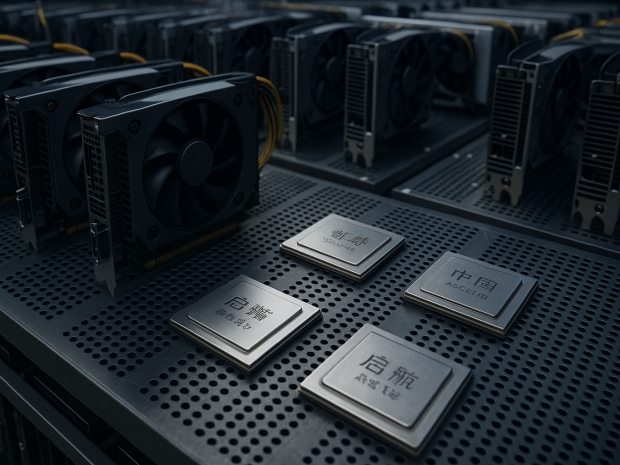Alibaba, Tencent and Baidu are all testing domestic semiconductors to keep their AI ambitions afloat, with Huawei’s Ascend series leading the charge. The latest US restrictions have rendered Nvidia’s H20 chip, a previously compliant watered-down version, off-limits, leaving Chinese firms with limited options and a ticking clock.
Baidu’s AI cloud boss Shen Dou told analysts the company is evaluating a range of chips for inference workloads, while Alibaba CEO Eddie Wu said they’re actively exploring diversified solutions. Tencent’s Martin Lau added that they’re trying to stretch their existing high-end chips for a few more training cycles but are also considering alternatives.
Huawei’s Ascend 910C and upcoming 910D chips are gaining traction, especially among state-owned enterprises and sensitive sectors like defence and finance. The 910C, which combines two 910B processors, is reportedly delivering up to 60 per cent of the performance of Nvidia’s H100 for inference tasks.
However, transitioning from Nvidia’s CUDA software stack to Huawei’s CANN is proving to be a headache, with some companies estimating a three-month disruption period.
Nvidia, meanwhile, is working on a new China-compliant chip based on its Blackwell architecture, expected to launch in July. But without high-bandwidth memory and possibly lacking NVLink, it may struggle to compete with local offerings.
Nvidia CEO Jensen Huang has criticised the export controls, calling them a “failure” that has inadvertently boosted China’s domestic chip development. Nvidia’s market share in China has plummeted from 95 per cent to 50 per cent over the past four years, and the company is bracing for an $8 billion revenue hit in the upcoming quarter.
As the chip war escalates, Chinese firms are adopting a hybrid approach. They are using their remaining Nvidia stockpile for training while shifting inference workloads to domestic processors. With Huawei ramping up production and other local players like Cambricon and Hygon entering the fray, the race to AI self-sufficiency is well underway.




